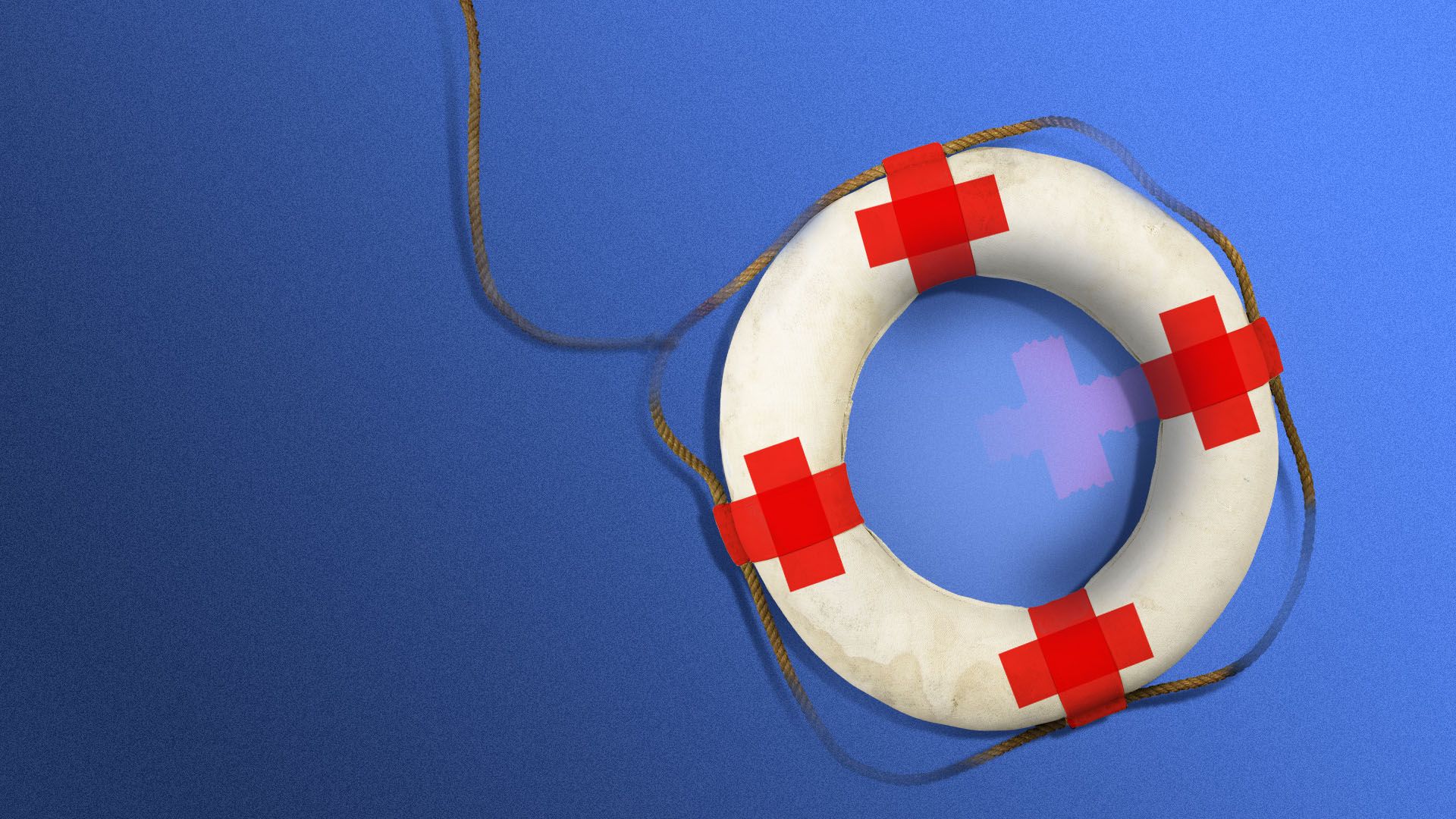Medicaid will be a coronavirus lifeline
Add Axios as your preferred source to
see more of our stories on Google.

Illustration: Sarah Grillo/Axios
Medicaid will be a lifeline for droves of Americans affected by the coronavirus pandemic.
Why it matters: Medicaid has long been the safety net that catches people during hard times, but a crisis of this magnitude will call upon the program — and strain states' budgets — like never before.
The big picture: Millions of people have already filed for unemployment amid the coronavirus-induced economic shutdown, and many of them will end up on Medicaid.
- The program will pick up many people who lost their income and their health insurance together, as well as people who lost jobs that didn't provide health insurance, and potentially some people who are still working and need medical care but aren't insured.
Medicaid is not the only option, but it's the biggest one.
- COBRA is an option for people who want to keep their employer coverage, but it's unaffordable for many. The Affordable Care Act's marketplaces also offer subsidized coverage, but the unemployed will likely qualify for Medicaid instead.
The intrigue: Partially due to the ACA, hospitals and health centers can sign up uninsured patients for Medicaid on the spot if they think those patients are likely to be eligible.
- As medical providers start to see influxes of coronavirus patients, some percentage of those patients may get added to the Medicaid rolls.
Yes, but: This surge in Medicaid enrollment could create big financial problems for states.
- The federal government pays most of the costs, but states are obligated to balance their budgets.
- States fund their share of the program through tax revenues that are disappearing as the economy shutters — and at the same time, Medicaid spending will increase as more people enroll.
- Congress has already chipped in to cover more of the program's costs during this crisis, but experts agree states will need a lot more federal help.
- "This is going to be a hard thing for states to grapple with ... because it's a public health and economic crisis," said Edwin Park, a Medicaid expert at Georgetown University.
A gut punch: Medicaid won't be much help to most people in the 14 states that did not expand the program under the ACA. Residents of those states are "at a significant disadvantage," said Cindy Mann, a former federal official who oversaw Medicaid.
- In 13 of those 14 states, people who have no dependent children cannot qualify for Medicaid at all, no matter how much income they've lost due to the coronavirus.
